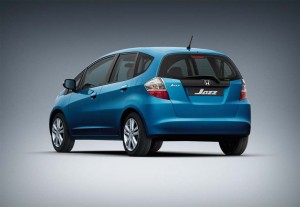
A strike at a southern Chinese transmission plant has shut down production of the Honda Jazz subcompact, which is exported to Europe.
A rare strike has crippled Honda Motor Co.’s growing Chinese production operations, despite efforts to fire or coerce workers who’re hoping to boost their $230 a month wages.
The walkout was launched on May 17 at a parts plant in the southern province of Guangdong at a transmission plant that supplies Honda’s auto assembly operations in China. The strike has cost the Japanese carmaker thousands of units in lost production, including versions of the Jazz subcompact that are shipped to Europe.
The walkout is unusual in that the official Communist-backed All China Federation of Labor Unions normally seeks to avoid confrontation with management. Some workers at the transmission plant, which is located in the city of Foshan, claim they were physically assaulted by union leaders. Others were reportedly fired when they declined to accept Honda’s initial offer.
The Honda plant has a well-educated workforce, most of its line employees boasting college or 2-year technical degrees. But the automaker has been able to hold down wages, in many cases, by bringing in many employees as “trainees.”
An early proposal by Honda, according to reports from China, would have offered the striking workers less than $2 a day to settle their grievances, but the latest offer, the maker said, would increase pay and benefits by 24%. Workers had sought a 53% bump, to $340 a month, or 2,300 yuan.
That, in turn, is expected to put more pressure on the overall Chinese auto industry, which has seen a general trend towards higher labor costs as the country’s car market has surged from a small cottage industry into the world’s largest.
In major cities along the Pacific Rim, like Shanghai and Beijing, where the majority or auto assembly plants are based, wages are nudging up as highas $2,000 a month on assembly plants, though supplier facilities typically pay less.
That has led many carmakers and parts manufacturers to begin diversifying their geographic base, expanding or shifting operations to smaller cities, such as Foshan, where labor costs are far lower.
While many Honda workers are still refusing to accept the maker’s latest offer, the company insist the “majority” of the 1,900 employed at the transmission facility are now back on the line. That should allow Honda to restart operations at its four Chinese assembly plants in the coming days.

The race to the bottom seems to be hitting a few speed bumps in China lately. Maybe global corporations will finally look at building their factories in Somalia in order to save on labor costs. Without a functioning government to enact, much less enforce, environmental of safety regulations, it’s got to look pretty attractive now that their Chinese slaves are starting to get uppity.
Funny you mention it, Bryan. Some years back, I was having a conversation with Jack Smith, the former GM Chairman who launched the maker’s investment in China. I pointed out that when South Korea started building cars for a world market, back in the mid-1980s, its workers made next to nothing. But by the time Smith and I spoke, their landed labor cost was roughly on a par with auto workers in Great Britain. The same thing will happen in Shanghai, I suggested to Smith, referring to the original GM China plant. “Probably,” he replied, “so we’ll have to go to Western China to keep labor costs down, then who knows, we’ll likely wind up in Bangladesh at some point.”
Another thought: Walter Reuther long believed that the best way to protect American auto jobs was to get workers around the world to organize and demand good wages. That would make it harder for manufacturers to move operations abroad.
To that point, you’re seeing a lot of production return to the U.S., if you look at the sales/production numbers. That reflects a bunch of factors: not just lower UAW wages and benefits (and cheaper transplant labor) but the fact that you need to consider issues like shipping costs, never mind quality and JIT issues, when sourcing production.
But don’t expect automakers to stop looking for low-cost production venues any time soon.
Paul A. Eisenstein
Publisher, TheDetroitBureau.com